California
The stories that marked 2022 for California and Los Angeles
Slow recovery from effects of the coronavirus impact coupled with an uptick in hate crimes & election races dominated headlines

LOS ANGELES – A war in Ukraine, the mid-term elections, a near pandemic of a highly infectious disease impacting men who have sex with men, the 2022 Beijing Games, a WNBA star imprisoned by the Russian government and then a carefully negotiated release, the election of the first Black woman as mayor of Los Angeles, the second-largest city in the United States and third-largest city in North America all marked 2022 as a unique year.
For Angelenos, the slow recovery from effects of the coronavirus impact coupled with an uptick in hate crimes, seemingly out of control gas prices, high inflation and election races dominated headlines.
In the late fall, allegations of corruption in the LA Sheriff’s Department, a significant increase in hate-related incidents coupled with higher crime rates and a crisis in LA City government, after a scandal involving three city council members heard in a leaked audio recording making racist and homophobic remarks, along with a tight mayoral race between a billionaire real estate tycoon and a popular Black woman member of the U.S. House of Representatives were the critical stories the Southland’s attention was focused on.
Monkeypox became the primary focus of the LGBTQ+ community as it spread with lightning speed as the Los Angeles County Department of Public Health, elected officials, and LGBTQ healthcare providers struggled first to diagnose and treat burdened by a federal and state bureaucracy unprepared to address vaccine supply shortages and implement vaccinations quickly.
Incidents of hate dramatically increased in California in 2022 as acts of anti-Semitism, threats of violence including death threats against LGBTQ-affirming businesses and public libraries for holding charitable drag events, and attacks on elected out LGBTQ lawmakers drew headlines.
Monkeypox
Monkeypox vax outages and bureaucracy impedes healthcare providers the Blade published 4 months ago on August 12, 2022. Frustrations mounted as the campaign to vaccinate people against infection of the monkeypox virus is derailed by a critical supply shortage of vaccine doses with added bureaucratic obstacles in getting financial reimbursement to the healthcare providers and clinics dispensing the vaccine.
From the initial reports of the outbreak in May of 2022, the global spread of the disease was astonishingly rapid. By the middle of the summer monkeypox became a worldwide public health crisis, with more than 23,200 confirmed or presumptive positive cases reported across more than 70 countries where it is not considered endemic. Declared a public health crisis by the World Health Organization and then by the Biden administration, in Los Angeles, the LA County Board of Supervisors voted to declare an emergency the day after California Gov. Gavin Newsom proclaimed a State of Emergency to combat the outbreak.
Political scandal grips LA City Hall
As the 2022 mid-term election races entered the final stretch in the fall, published accounts of an audio recording with three city council members, one of whom was council president, and a prominent labor leader rocked the political world in Southern California. The Los Angeles Times and Knock LA published articles and audio of racist comments regarding gay LA City Council member Mike Bonin’s Black son and other city and county officials.
In the aftermath, Nury Martinez announced she was resigning as president of the LA city council and then later from her seat. The chief of the Los Angeles Police Department, Michel Moore in a tweet referred to the scandal as “a dark day for our City of Angels.”
The scandal continued as one of the other two elected officials, Council member Kevin de León refused to resign his seat after public outcry and protests against his remaining on the council disrupted regular sessions of that elected body.
Bass sworn in as LA mayor
Thousands gathered in downtown L.A. on December 11, 2022 at the Microsoft Theatre to witness the historic inauguration of Mayor-elect Karen Bass. Many danced in the aisles to the upbeat music pouring into the theater through the loudspeakers.
Bass was sworn in by Vice President Kamala Harris, the first Black and first woman American ever elected to hold that office.
Bass, 69, no stranger to pioneering women’s and African-American rights, is now Los Angeles’ 43rd mayor and the first woman and second African American to be elected to this position after the legendary Mayor Tom Bradley, in the city’s 241-year history. She won the election against billionaire businessman and developer Rick Caruso in a neck-and-neck race.
“Making history with each of you today is a monumental moment in my life and for Los Angeles,” said the new mayor in her inauguration speech.
The State of Hate
Reported hate crimes in Los Angeles County grew 23% from 641 to 786 in 2021. This is the largest number recorded since 2002. The crimes overwhelmingly included acts of violence, and more than half were spurred by racism. Blacks, Latinos, Jews and LGBTQ individuals were the most-targeted groups. While Black residents only make up 9% of the county’s population, the report showed that they comprise 46% of hate crime victims.
Amid an increase in hate-fueled violence across the country, Governor Gavin Newsom signed legislation to equalize and strengthen penalties for using hate symbols and bolster security for targeted religious and community-based nonprofits.
Newsom also announced his appointments to the Commission on the State of Hate including longtime Trans Latina advocate and Los Angeles community leader Bamby Salcedo who heads the TransLatin@ Coalition.
Anti-LGBTQ+ Hate
For the LGBTQ community in Southern California, in fact across the state, 2022 saw an escalation of anti-LGBTQ+ threats of violence, attacks on the drag community, and against individuals. One openly gay senior at El Toro High School in Orange County has had it with homophobia, especially when it appears at his front door, literally. 18-year-old Landon Jones posted video captured from his family’s ring.com surveillance camera that displayed the homophobic abuse that occurred, which has now gone viral.
Politicians’ were also targets of anti-LGBTQ animus. The most recent example occurring on December 6th, when San Francisco police responded to a bomb threat at Calif. State Senator Scott Wiener’s home. Wiener is an openly gay champion for queer rights, who represents San Francisco’s Senatorial District 11 in Sacramento.
This also marks the second time this year that a bomb threat targeting him resulted with police searching his residence and professional workspaces. Both times the threats were laced with profanities that denigrated his sexuality.
Transitions
Out actor Leslie Jordan died in a Hollywood car crash after suffering an unspecified medical emergency the LAPD said. The 67-year-old beloved actor and comedian saw a resurgence of fame with his viral and hilarious videos on social media during the lengthy coronavirus pandemic. Jordon was best known for his roles as Lonnie Garr in Hearts Afire (1993–1995), Beverly Leslie in Will & Grace (2001–2006, 2017–2020), and several characters in the American Horror Story franchise (2011–present).
Jordan was also devoted as an advocate for LGBTQ+ equality rights.
Thomas Senzee, a California native whose award-winning career spanned nearly thirty years in media, writing for outlets including The Huffington Post, The Advocate/OUT, The Fight Magazine, The Washington Blade, The Los Angeles Business Journal and other publications, was found deceased on Thursday, March 24, 2022, in Palm Springs. The former Editor-In-Chief of the San Diego LGBT Weekly webzine and frequent contributor to The San Diego Reader, an alternative press newspaper, died at age 54.
She was a staple at hundreds of LGBTQ+ events, often performing around her beloved Chicago, over the years and a staunch defender of LGBTQ+ equality. Often referred to as “The Love Goddess” and “Aphrodite of the Accordion,” comedian Judy Tenuta died at her LA home, also in October, at age 72 from ovarian cancer.
California leads the way in LGBTQ+ legislative efforts nationwide
Providing safeguards to block out-of-state attempts to penalize families that come to Calif. seeking medical treatment for trans children, a first-in-the-nation law will help create a more inclusive and culturally competent healthcare system for TGI (transgender, gender diverse, and intersex) people in California, and laws to allowing cities to adopt the new regulations for multi-stall gender-neutral bathrooms plus legislation to Protect Sexual Assault Victims’ DNA were signed into law this past year by California Governor Gavin Newsom.
2022 Midterm Elections
For LGBTQ+ Californians, this election cycle brought a number of significant advances as more openly LGBTQ+ officials were elected or reelected to local, state, and federal offices. In the election cycle, California became the first state in the nation to achieve 10% LGBTQ+ representation in its state legislature.
Rick Chavez Zbur (AD-51) — the former executive director of Equality California was sworn in to represent West Los Angeles County to include the LGBTQ+ enclave of West Hollywood.
Representative Mark Takano who was the only LGBTQ+ Member of Congress, found himself joined by former Long Beach Mayor Robert Garcia in turn himself becoming the first openly gay immigrant elected to the U.S. House.
LA County DA addressing the needs of the community
Last April, Los Angeles County District Attorney George Gascón announced the creation of the office’s first-ever LGBTQ+ Advisory Board, one of several Advisory Boards that will provide valuable community input into his work building a safer and healthier county for all. The Board will advise the District Attorney’s Office regarding policies, priority issues, and best practices related to LGBTQ+ Angelenos and the criminal justice system.
District Attorney Gascón and his staff have been criticised for the way cases are handled including those cases dealing with members of the trans community.
LGBTQ+ representation and community service
LA City Fire Department’s 1st woman & Out firefighter was sworn in as chief. Kristin Crowley, a 22-year veteran of the LA City Fire Department was sworn in as the city’s 19th fire chief this past March by the Mayor of the City of Los Angeles Eric Garcetti surrounded by her wife and other family members.
Crowley made history within the LAFD when she became the city’s first female fire marshal in 2016. But, as she was sworn in Friday Crowley garnered the distinction of becoming the first woman and first openly Out firefighter in the history of the 136-year-old department.
Chief Crowley was nominated by Garcetti in January to lead a collective of 3,246 uniformed fire personnel and 353 professional support personnel. Crowley took the firefighters’ exam in 1998 and placed among the top 50 scores out of 16,000 applicants, according to the department.
California
South Park provides green space to a predominantly Latino community
‘…the need for green spaces within Latino communities has never been greater, especially in South L.A.

South Park, one of the oldest parks in Historic South Central, has brought multi-generational Angelenos together for centuries.
The park sits at the intersection of 51st Street and Avalon Blvd, surrounded by some of the most socially, culturally and historically important locations in the country, including Central Avenue, site of the West Coast jazz scene in in the 30s and 40s, the former Black Panther Party headquarters in L.A and one of the epicenters of the Watts rebellion in 1965.
The park—also known as Barry White Park—was founded in 1899. Today, 126 years later, the park still stands—hosting weekend soccer games, señoras chismeando, recreational activities like swimming, card games among elders and city-led events.
The park was named after two-time Grammy Award winner and R&B singer Barry White, who grew up in South Central, just blocks away from the park.
As PBS initially reported, the City of Los Angeles purchased it from a private developer for $10,000. At that time it was not as big as it is now, but was always characterized by its tall palm trees.
The park is located in Los Angeles City Council District 9, where the population is predominantly Latino (79.9%). According to Park Equity, Life Expectancy and Power Building research, the need for green spaces within Latino communities has never been greater, especially in South L.A, where the landscape is often characterized by an overconcentration of liquor stores and a lack of quality and accessible recreational spaces. More than a century after the park’s opening, for many local residents, it is one of the only parks within walking distance for them.
Amanda Walker, 56, moved to L.A. from Chicago, Illinois. She said one of her favorite things to do at the park is to take in the sun.
“The sun falls perfectly anywhere through the park, that’s probably my favorite part,” Walker said.
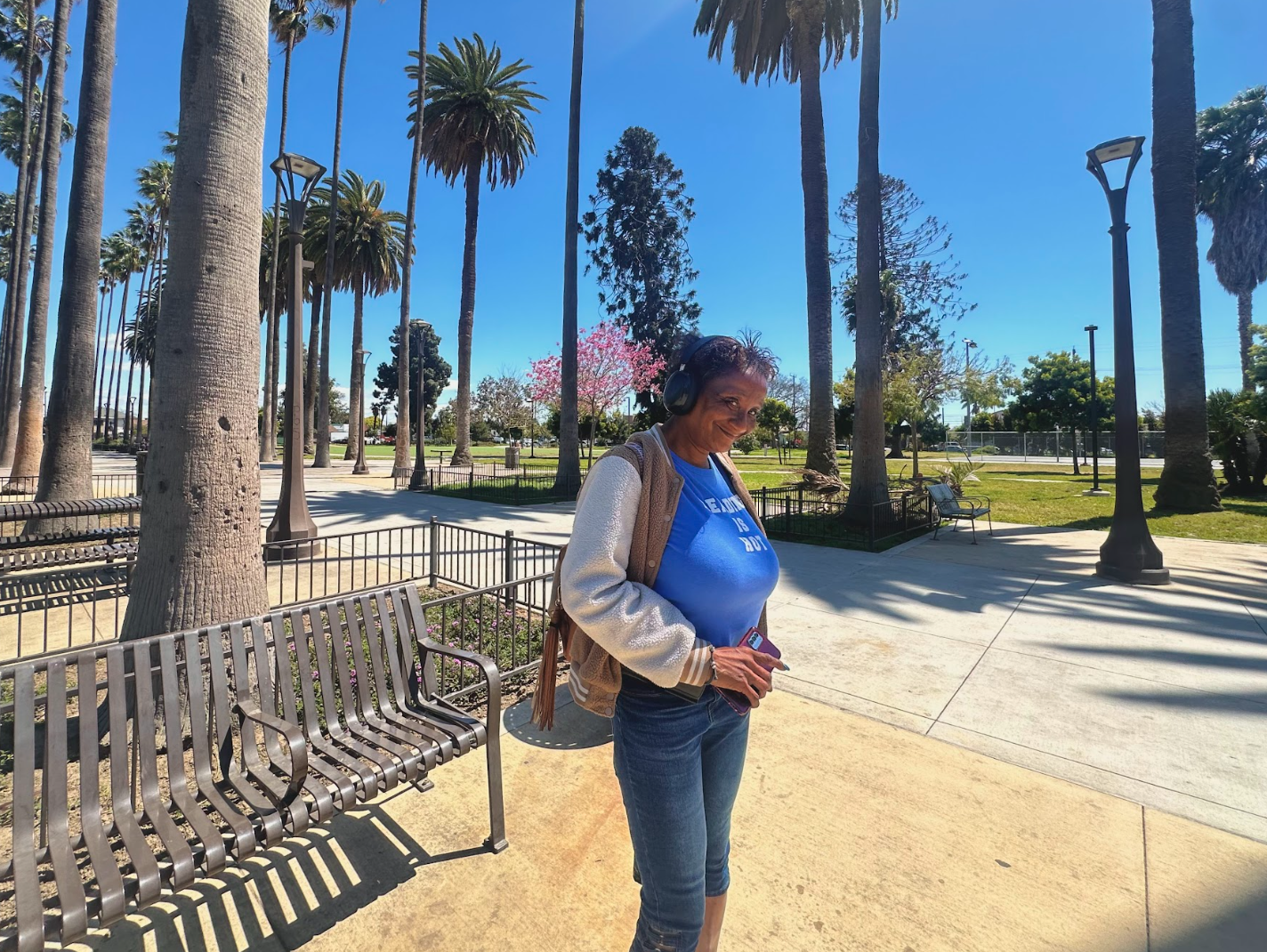
Amanda Walker at the park before meeting up with her friends. (Photo by Brenda Verano)
Walker said she loves coming to the park with her friends, who often use the park as a gathering place.
“I do wish there were more activities for adults,” she said. “The park has a playground for kids, and basketball courts… we need more things in the park for people like me.”
Maria L., 30, said she also comes to the park to be surrounded by nature. Although she lives in South Central, she said she does not have much free time to come as often as she would like.
“I haven’t been here in about eight months,” she said. Although she was alone, she was on a video call with her family where she was able to show them the scenery of the park and said she was surprised at how green and vibrant it all looked.
“I like coming here to just sit and hang out,” she said. She enjoys the sense of community she feels when being in the park. “Some people are walking their dogs; others are exercising or simply just laying down. It’s nice. I also like seeing the birds and the squirrels,” she said.
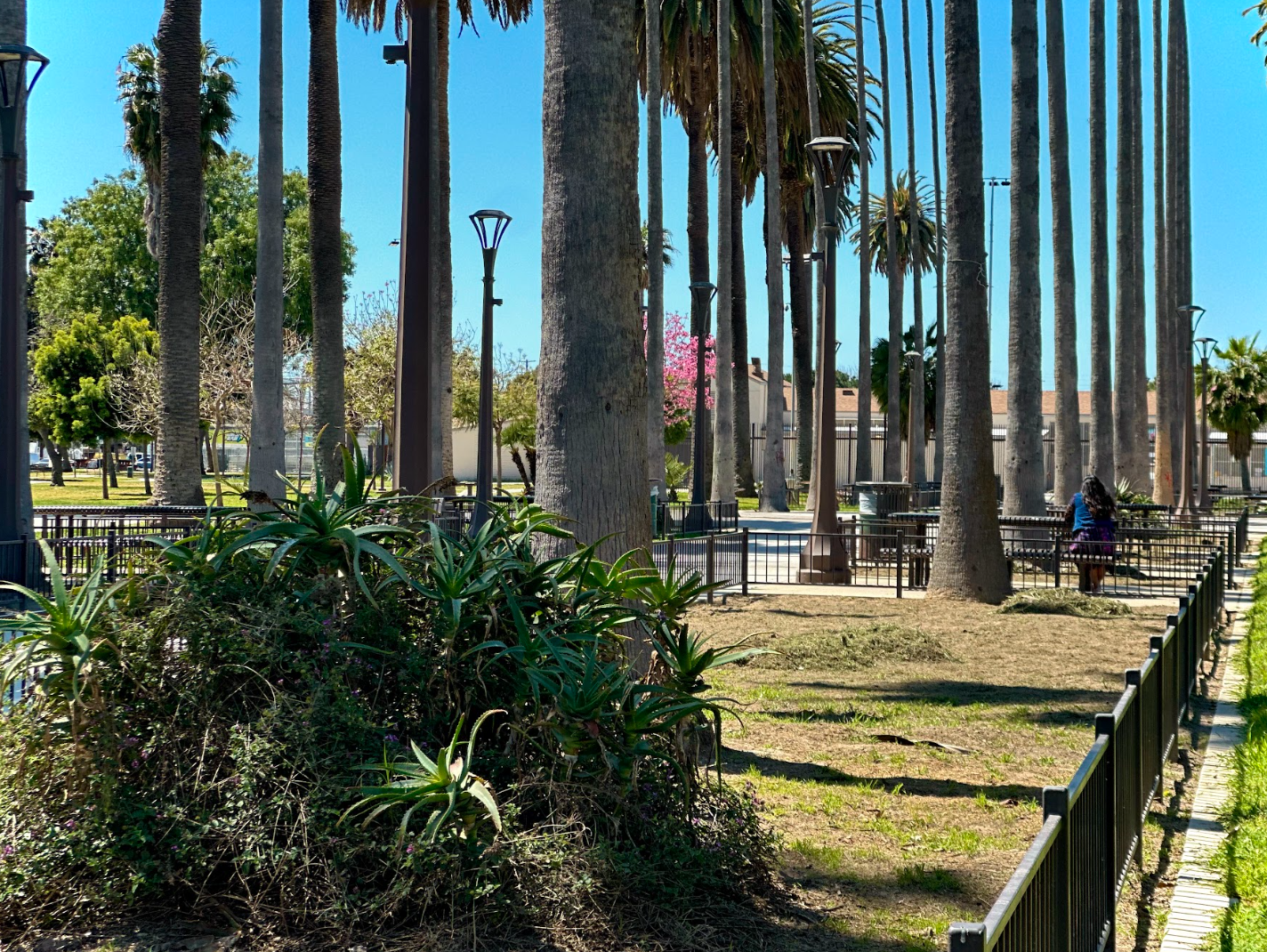
From a distance, Maria L. sits in the sun on the park benches. (Photo by Brenda Verano)
The relationship between access to parks and life expectancy are closely linked. Park deserts can have disastrous effects on residents as well as wildlife, as stated by a study conducted by the Prevention Institute in partnership with University of California, Los Angeles , the National Health Foundation, Community Coalition, Esperanza Community Housing Corporation and the Social Justice Learning Institute.
According to the research, South Central L.A. is considered to have “high park need” and “very high park need” neighborhoods, with an average of 1.6 and 0.7 acres of parkland per 1,000 residents, in comparison to the L.A. countywide average, which is 3.3 acres of parkland per 1,000 residents. The median life expectancy in South L.A. is 77 years, well below the level for the county as a whole. About 15 miles away, in the community of Beverly Hills, the life expectancy is about 90 years, 13 years higher.
South Central residents have been asking for more investment in parks and recreational facilities. In 2018, the 18.25-acre park went through a multi-million renovation, which allocated funding for the improvement of its gym, swimming pool, basketball and tennis courts, baseball diamond, outdoor stage, fitness area, picnic tables and children’s play area.
Despite the recent investments, the park has also been widely known for its gang and chrome activity, which the community says has been a direct effect of years of disinvestment and neglect.
In previous years, the Los Angeles Police Department identified the park as an area where gang activity—specifically from the Avalon Gangster Crips, Broadway Gangster Crips and 52nd Street Playboys—has been observed.
“The problem was scanned and revealed that this park, like many others in urban America, had slowly been neglected and overrun by criminal activity that revolved around gangs, narcotics and quality of life issues,” states the LAPD. “The analysis of the problem at the park was conducted by reviewing data, meeting with officers and receiving input from local community representatives and park staff members.”
Despite this, the community recognized the park as a long-standing historical entity of South Central L.A.
As one of the oldest parks in the city, South L.A. Park continues to be home to local residents, wildlife, street vendors, youth and all the great things that make up Los Angeles.
EDITORS NOTE: This article was published through the Bezos Fellowship grant provided by the Ethnic Media Services, which recently changed its name to American Community Media. The article was written by Brenda Fernanda Verano, an award-winning journalist who reports for CALÓ News, a local non-profit newsroom focusing on the Latin American community of Los Angeles.
Arts & Entertainment
LA Opera brings back Pride Night with a production of ‘Ainadamar’
Pride Night returns at the LA Opera

LA Opera is bringing back its Pride Night on Wednesday May 7, in partnership with the Opera League of Los Angeles.
LGBTQ members and allies will come together for Pride Night to indulge in a performance of “Ainadamar,” at the Dorothy Chandler Pavillion. The discounted tickets for Pride Night include access to a complimentary post-show party at Vespaio hosted by the Opera League of Los Angeles, featuring Cal-Italian bites from Chef Agostino Sciandri.
“Ainadamar” is a tribute to Spanish poet and queer icon, Federico García Lorca.
“This season, we celebrate with ‘Ainadamar,’ a powerful tribute to Spanish poet and queer icon Federico García Lorca. These pairings matter. They highlight that opera is a living, evolving art form—one that speaks to all people and reflects the diversity of the world we live in,” said Christopher Koelsch, president and CEO of LA Opera.
The central plot of “Ainadamar,” which is the Arabic meaning for ‘fountain of tears,’ follows Ana María Martínez as Margarita Xirgu, an actress who spent half of her career portraying Mariana Pineda, who was a 19th-century Spanish liberalist heroine, in Lorca’s play. Pineda was a political martyr who was executed for embroidering a flag with the slogan “Equality, Freedom and Law,” in protest of the absolutist Spanish regime.
The production, running at approximately one hour and 20 minutes, sets the stage with a throwback, recounting Lorca’s life and his last days in the Spanish Civil War.
“At the heart of our Pride Night celebration is the belief that everyone should feel seen onstage and off. Opera is a space for community and belonging, where our audiences can recognize themselves not only among fellow attendees, but also in our artists, our music and the stories we tell,” said Koelsch.
This major company premiere, led by resident conductor Lina Gonzáles-Granados, is sung in Spanish, with English and Spanish subtitles. Grammy-winning composer Osvaldo Golijov produces the dramatic, flamenco-inspired score that meets the poignant libretto by David Henry Hwang.
During the COVID-19 shutdowns, live performances at the LA Opera were put on hold and the journey to bring back Pride Night, among many other in-person performances, was a struggle filled with many moving parts.
“COVID-19 suspended live performances across the board and during our return season we were navigating the different timelines for audiences returning to live theater. It was very much a matter of listening to our community and learning what had changed for them as well as us: some opted for livestream options, others preferred only outdoor events, and so on,” said Koelsch. “Once we found our stride, we were excited to bring back Pride Night the following season during ‘The Marriage of Figaro.’”
This year the LA Opera is celebrating their 40th anniversary by launching their 40th Anniversary Campaign to raise resources needed to continue funding their organization.The show opens on Saturday, April 26 and runs through May 18. Purchase tickets by clicking here.
California
Running, racing, dodging: Janelle Kellman on her bid to be California’s next Lieutenant Governor
Kellman says that she wants to use the position to tie together responsible growth and addressing the affordability crisis

Janelle Kellman is used to running marathons, which comes in handy as she campaigns to be
California’s next Lieutenant Governor – a campaign she began in 2023 for an election
that won’t happen until November 2026.
“The secret to being a true runner is consistency and discipline,” she says. “Nobody will
outwork me. I am not career politician. I am somebody who is gonna roll up my sleeves
and do all of the hard work.”
If she wins, the environmental lawyer and former mayor of Sausalito will make history
as the highest-ranking LGBTQ person elected to statewide office in California. But Kellman says she’s no climber. She’s putting a large stock of her campaign on the fact that she’s not a Sacramento insider and she’s not planning to use the job as a springboard to some other, more high-profile job.
“Many people run for this position because they want to be something else. I’m not
trying to be something else. Actually, I really want to do this job,” Kellman says.
The Lieutenant Governor sits on the boards of all of California’s higher education
institutions and has a significant role in natural resources and economic planning
through membership on the State Lands Commission, Coastal Commission, and
Commission for Economic Development.
Kellman says that she wants to use the position to tie together responsible growth and
addressing the affordability crisis that has seen hundreds of thousands of people leave
the state.
“There’s three things we really need to be focusing on to address affordability crisis.
Number one more housing of all types. Number two, proper public safety policies and
keeping our families safe. And number three, better mental health programs, both to keep people off the streets and address the homelessness problem and to support our
children,” she says.
Meeting these challenges will require someone who can ensure that many different
parts of California’s government – from the education system, the housing approvals
process, to the legal system, the heath care system and more – are laser focused on
bringing down the cost of living, Kellman says.
“I’m a lifelong team sport athlete and I’ve always been the captain of all the sports, and I
see [being Lieutenant-Governor] very much as a unifying collaboration type role, right?
This is a role I specifically want because I like that dynamic. I am really drawn to the opportunity to bring experts together.”
Kellman is aware of the symbolism her serving as Lieutenant Governor as a queer
woman would have in 2025.
“Our rights are under attack nationwide, and I see it as more important than ever that
California continue to be a stronghold of equity and inclusion,” she says. “To have
somebody who represents a minority community at the helm of our government really
gives visibility to our issues and reinforces that Californian is a place that values equality
and inclusion.”
Still, on one of the thornier issues of queer inclusion, Kellman is noticeably aversive.
She was quick to scold the Gov. Gavin Newsom when asked to comment on his recent podcast where he mused that trans women competing in women’s sports was “deeply unfair.”
“I hope that he would aim to represent all members of the State of California. So, I
hope he continues to govern and not just have a podcast for the next couple of years,”
she says. “But it’s also an opportunity to remind voters and remind everybody, it’s much more than that. It’s about inclusion. It’s about education. It’s about mental health and wellness.
There are so many issues that affect people Nationwide and Statewide. We’ve got to
stay focused on the big picture.”
But does that mean that she would advocate for trans women athletes being able to
compete in women’s sports, particularly as the lieutenant governor has a role in higher
education, where this issue has been in focus?
“I think the role of the Lieutenant Governor as an individual who sits on many of these
boards is to ensure that all students are treated fairly, and all our young people feel safe,
whoever they are on college campuses. I think that is the number one. No matter your background, no matter your orientation. So I would apply that across the board to anybody on college campuses,” she says.
Given one more chance to clarify her position, Kellman dodges again.
“I think that we have bigger issues to be talking about in the United States and
California,” she says.
But Kellman is critical of the Democratic political establishment that has entrenched
itself in Sacramento, which she characterizes as impeding progress on California’s most
critical issues.
“We’ve become an obstructionist party, and we need to be a party that gets things
done,” she says. “I’ve been able to get a lot done even as a small town mayor, and I see
my fellow mayors be able to get things done at the local level, I want to raise that up so
that it happens statewide.
“Let’s be the party that gets things done. And let’s focus on this high cost of living first
and foremost,” she says.
Without invoking the specter of the word “efficiency” in today’s political climate, Kellman
is also eager to hold the establishment to account for solving the state’s problems.
“Where’s the accountability? Where’s the transparency? What is happening in real
time? Let’s take homelessness, right? We know that as a state from 2017-18 to now, we
spent 22 billion dollars on homelessness. And during that same time period, the number
of unhoused in California went up by a third. Now, what if we were actually demanding
accountability and transparency along the way?”
And she’s eager to hold herself to account in office, too.
“If this was the private sector, I’d get hired. Because we would say you know how to do
the job, you’re going to be held accountable. We need more of that.”
California
Two anti-trans bills fail to advance in California
AB 89 and AB 844 were aimed at banning trans women and girls from competing in women’s sports
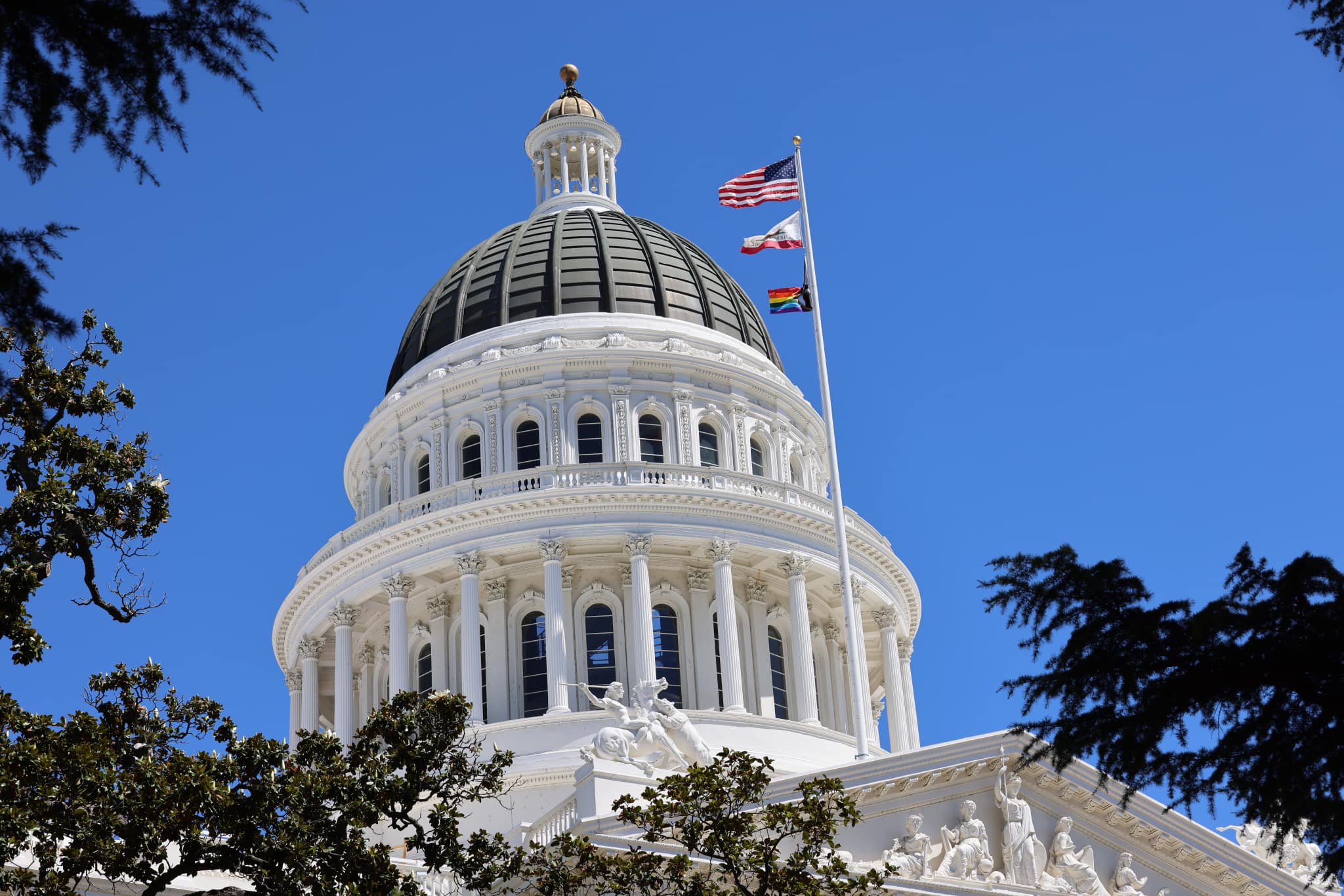
The two bills introduced by Republican lawmakers aimed at banning trans athletes from female sports, did not pass during yesterday’s committee meeting.
Assembly Bill 89 and Assembly Bill 844, have failed to advance in the Arts, Entertainment, Sports and Tourism Committee on Tuesday by a 2-6 vote on each bill. AB 89, introduced by Assemblymember Kate Sanchez (R-Rancho Santa Margarita) and AB 844, introduced by Assemblymember Bill Essayli (R-Riverside), were both rejected by California lawmakers.
“If these members and their counterparts were truly committed to addressing the inequities and safety concerns women and girls face—in sports and everyday life—they would be joining the frontlines in the fight for equal pay, stronger protections against domestic violence and sexual assault, and expanded healthcare resources,” said Tony Hoang, executive director at Equality California.
AB 89 and AB 844 are part of the nationwide coordinated effort led by extremists in Washington D.C. to sow fear and misinformation about transgender people—in particular youth—and attempt to erase them from virtually all areas of public life.
“Instead of tackling the real problems in our state like high inflation and rising healthcare costs, Assemblymembers Sanchez and Essayli continue to waste time and taxpayer money using transgender youth as political pawns in a shameful display of divisive politics and a thirst for attention.,” said Hoang.
AB 89 would have established a ban on athletes whose sex was assigned male at birth, from competing on a girls’ interscholastic sports team.
AB 844 would have reversed California’s law which currently allows trans athletes to participate in girls and women’s sports teams across all age levels, up to college level.
Tuesday’s hearing marked the first public debate on the issue in California since Newsom’s public comments about trans women in sports being “deeply unfair.”
On Friday, Gov. Newsom’s office confirmed it received a letter from U.S. Education Secretary Linda McMahon, stating that California could lose federal funds if it continued to allow trans athletes to compete in women’s and girls’ sports.
“As Secretary of Education, I am officially asking you to inform this Department whether you will remind schools in California to comply with federal law by protecting sex-separated spaces and activities. I am also officially asking you to publicly assure parents that California teachers will not facilitate the fantasy of ‘gender transitions’ for their children,” she wrote in the letter.
Equality California continues their partnership with the Legislative LGBTQ+ Caucus and other legislative partners in an effort to combat the passage of bills like AB 89 and AB 844.
“We are pleased these bills have failed and are thankful to those lawmakers who opposed this dangerous legislation in committee, particularly to the committee chair, Assemblymember Chris Ward, for his leadership,” said Hoang.
California
GLAAD’s Latine Honors celebrates culture and identity with packed house

GLAAD’s Spanish-Language & Latine Media created and produced the first Latine Honors, nearly blowing the roof off of Grandmaster Recorders in Hollywood, with a more-than-packed house full of stars.
The Latine Honors were created to celebrate the best in queer, Latine visibility and representation in entertainment media, advocacy and journalism. This event happened back-to-back-to-back with the GLAAD Black and Brown Honors and the 36th GLAAD Media Awards.
The Latine Honors were hosted by the hilarious stand-up comedian Roz Hernandez, who continues to make waves in the Los Angeles comedy scene and beyond.
“Every single time [GLAAD] calls, I answer,” said Hernandez on the carpet.
Hernandez says she is very lucky to be acknowledged by GLAAD and to join forces with them in the work they do for the LGBTQ+ community.
The Spanish-Language Special Recognition Awards were presented on stage by Harvey Guillén to “The Q Agenda,” a TV series on Latin Nation and “La Verdrag,” a news show on Canal Once, for their incomparable contributions to queer, Latine representation in media.
LA Blade had the chance to interview some of the Latine stars that graced the carpet to offer their two cents on issues affecting the LGBTQ+ community, including Harvey Guillén, Vico Ortíz, David Archuleta and members of “The Q Agenda.”
“I think now more than ever, it’s important for us to remember that we can’t be numb to the things happening around us,” said Guillén. “People are becoming less empathetic toward our community and other communities being attacked, so we have to remember to not lose focus. Do not lose focus and do not lose empathy.”
We also had a chance to catch up with Ortíz on the carpet. They are currently hosting a daily LGBTQ+ news podcast with Nay Bever, where together, they tactfully deliver the news that is relevant to our communities.
“I am co-hosting a daily news podcast called ‘Today in Gay,’ where we wake up everyday, we read the news and then report them to our queer community,” said Ortíz. “It’s quite a responsibility, but I’m also really honored to deliver [the news] with care and tenderness and tact.”
Ortíz was an honoree at the Latine Honors for their outstanding contributions to the media and entertainment industries as a Puerto Rican, non-binary, multi-hyphenated artist.
Archuleta spoke to us about his latest single Créme Bruleé, which incorporates a Latin flare to a pop tune.
“I’m so excited because I just released a new song, Creme Bruleé” said Archuleta. “I was really inspired by the pop girlies – Chapelle, Sabrina, Charlie [XCX], Billie [Eilish], and I just thought I wanted to channel that and I want to feel that confidence and that sexiness that I feel when I listen to their music, but I wanted to add a Latin flare to it.”
Keynote remarks were delivered by GLAAD President and CEO, Sarah Kate Ellis; welcome remarks were shared by Monica Tresandes, Senior Director of Spanish Language & Latine Media and Representation; and Gabe Gonzalez, host of GLAAD’s original ¡DÍMELO!, shared remarks about the attendees representing the Latine creators and media from across the industry.
California
Equality California to release 2024 Legislative Scorecard and rally at State Capitol
The rally will unite LGBTQ+ community members and political leaders
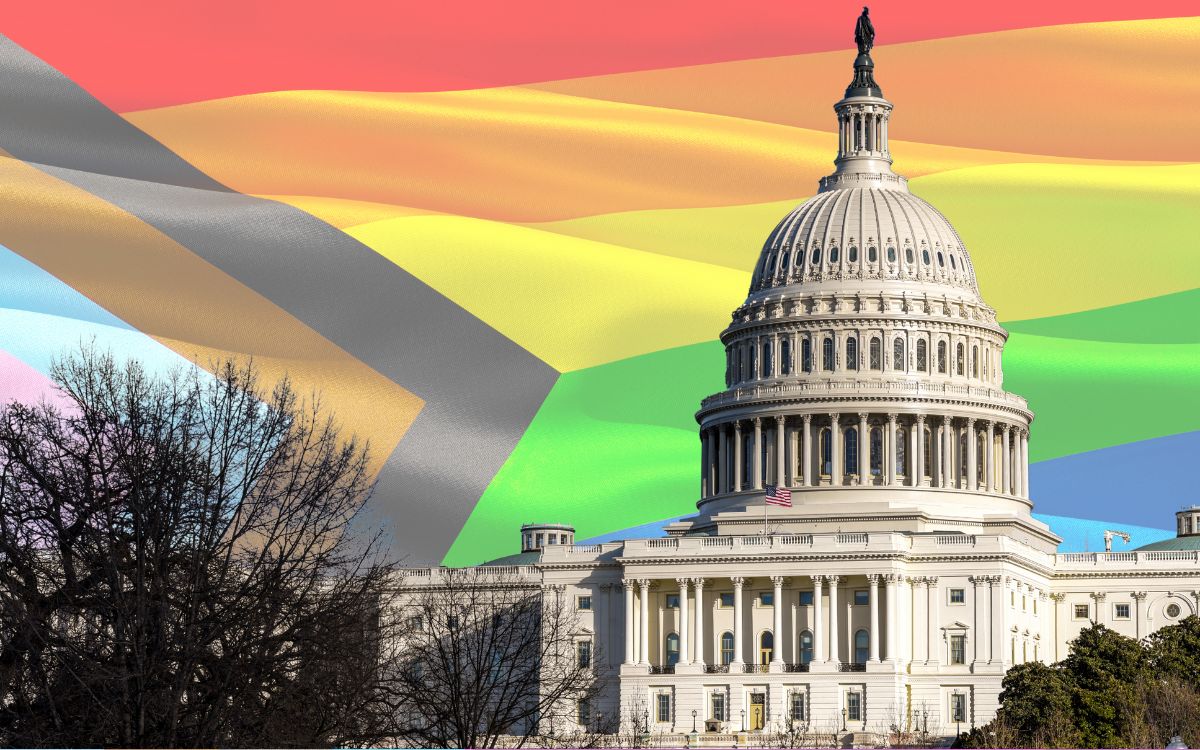
Equality California will hold a rally at the State Capitol’s West Steps in response to rising anti-LGBTQ+ political attacks on Wednesday, March 26 at 11:00 AM PT.
This rally will also serve as an opportunity to discuss the release of the 2024 Legislative Scorecard, which is a report of politicians and sponsored legislation that further and cement the protections of LGBTQ+ rights. The scorecard also analyzes voting methods and results, gathering an overall score that reflects legislators’ votes on EQCA-sponsored legislation.
Equality California is the nation’s largest statewide civil rights organization working towards bringing justice to LGBTQ+ issues by rallying against legislative issues that attack LGBTQ+ rights.
This call to action will serve as part of the organization’s annual LGBTQ+ Advocacy Day, held each year to bring together constituents with lawmakers in support of pro-LGBTQ+ legislation.
EQCA has a line-up of featured political speakers to include Assembly Democratic Caucus Chair Rick Chavez Zbur, Legislative LGBTQ Caucus Chair and Assemblymember Chris Ward, Legislative LGBTQ Caucus Vice Chair and Senator Caroline Menjivar, among others.
This event is meant to bring attention to the rise in political attacks, unite in community and mobilize efforts toward preserving LGBTQ+ rights for the state of California and beyond.
Breaking News
Family of Linda Becerra Moran, trans woman killed by LAPD after calling 911, files lawsuit
Moran was pronounced dead after three weeks on life-support

On Feb. 7, Linda Becerra Moran contacted the Los Angeles Police Department in a phone call where she reported that she was being held against her will in a San Fernando Motel.
At around 9:40AM, Moran called the Foothill Division of the LAPD, and was recorded stating that she was not only being held at the motel against her will, but that she was being forced to bring men into her motel room. In the audio call recording, she is heard crying as she answers the questions regarding her safety.
When the officers found her in the hotel room they stated that she didn’t remember how she got there, while speaking in Spanish to the officers.
The statement released regarding the officer-involved shooting says that ‘when officers arrived, they entered the motel room and met with Moran. During their investigation, Moran became agitated, armed herself with a knife and held it to her neck.’
The officers responded by drawing their guns, further agitating her. The attorney representing the family of Moran says the released video proves that the shooting was unlawful and unjust.
Now, the TransLatin@ Coalition is looking for justice for Moran and her family, especially considering that she was someone who received services directly from them. They hosted the first vigil for her on Friday, March 14, in front of the LAPD headquarters.
“Linda Becerra Moran, a trans immigrant who received services from our organization, was brutally shot and murdered by the Los Angeles Police Department. We held a vigil and we invited the community to join us in solidarity as we demand justice and honor Linda’s life,” said the TransLatin@ Coalition in a statement.
The police officer who shot and killed Moran was Jacob Sanchez, 24, who was hired in 2021.
Moran was pronounced dead after three weeks on life support in late February.
Somos Familia Valle, is hosting a poster-making event today from 2PM to 8PM where they will be preparing for a call to action. The call to action is scheduled for Saturday, March 22 at the Foothill Division Police Department, at 1PM. The organization posted a list of demands, along with their statement on Moran’s death.
“At a time where our trans siblings are being attacked politically and socially, now more than ever is the time for us to be loud and seek accountability,” reads the statement. “The murder of Linda Becerra Moran by the Los Angeles Foothill Division Police Department was unwarranted and speaks to the disregard for trans lives, but also the lack of de-escalation tactics.”
California
HRC criticizes Gavin Newsom for saying trans athletes should not be able to compete
Calif. governor made comments on Charlie Kirk’s podcast

The Human Rights Campaign issued a statement Thursday criticizing Democratic California Gov. Gavin Newsom, who said this week that allowing transgender athletes to compete in women’s sports was “deeply unfair.”
HRC President Kelley Robinson said, “When LGBTQ+ lives are under attack, real leaders don’t hedge — they fight. Across this country, extremists are stripping away rights, banning books, and targeting trans kids just for being who they are. This is not the time for political calculations or playing it safe — it’s time to be bold, to stand up, and to say unequivocally: We will protect LGBTQ+ people with everything we’ve got.”
She continued, “The fight for equality has never been easy, but history doesn’t remember those who waver — it remembers those who refuse to back down. Our message to Gov. Newsom and all leaders across the country is simple: The path to 2028 isn’t paved with the betrayal of vulnerable communities — it’s built on the courage to stand up for what’s right and do the hard work to actually help the American people.”
A longtime ally to the LGBTQ+ community, Newsom was one of the first public officials to officiate same-sex marriages in the early 2000s, which at the time drew criticism from leaders in his own party.
His remarks on trans athletes came during an interview with right-wing pundit and provocateur Charlie Kirk, on the inaugural episode of the governor’s podcast, “This Is Gavin Newsom.”
The move signals a possible shift in how Democratic leaders are positioning themselves on issues concerning trans rights, especially provided the speculation about Newsom’s plans to run for president in 2028.
Breaking News
Former fire chief Kristin Crowley loses fight for her position
Former fire chief loses appeal to be reinstated after being fired by Mayor Karen Bass
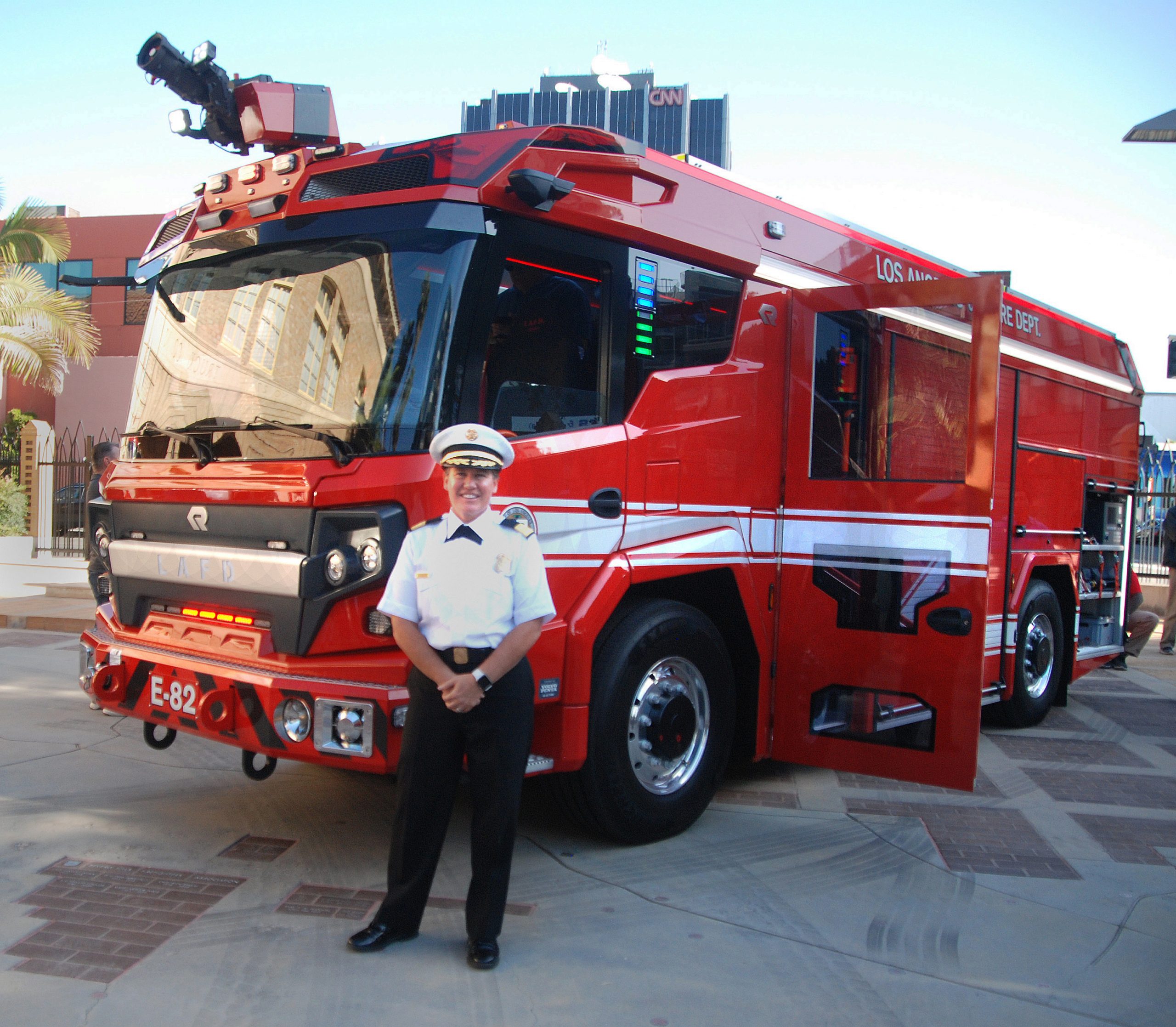
On Tuesday, the former Fire Chief of the Los Angeles Fire Department fought for her job to be reinstated through an appeal process that did not go in her favor. She will not get her job back, though she is expected to continue working for the department.
At the meeting, Crowley pushed back for the first time against the arguments Bass used to justify her termination. Crowley argued that she was facing retaliation for publicly highlighting a lack of resources at the department.
Going into the special meeting on Tuesday, she had to count on the support of at least 10 of the 15 councilmembers, or two-thirds. The appeal was almost certain to fail because she only counted on the support from Councilmembers Monica Rodriguez and Traci Park.
The main justification for her removal comes from Mayor Karen Bass, who claims Crowley allegedly made decisions that ultimately caused the Palisades fires to burn out of control.
”A thousand firefighters that could have been on duty on the morning the fires broke, were instead sent home,” said Bass in a previous press conference.
Crowley responded to her accusation.
“As for the 1,000 firefighters who were allegedly sent home prior to the fires, we did not have enough apparatus to put them on,” Crowley said. “Because of budget cuts and lack of investments in our fleet maintenance, over 100 of our fire engines, fire trucks and ambulances sat broken down in our maintenance yards unable to be used to help during the worst wildfire events in our history.”
At Tuesday’s meeting, Mayor Bass doubled-down on her claims, adding that Crowley allegedly refused to conduct an after-action report following the Palisades fire.
A claim that Crowley says is false.
“I did not refuse to conduct an after-action report,” said Crowley to the council. “And let me be clear, this is a false accusation.”
“During our discussions about an after-action report, I advised the fire commissioners about my opinion that was best in regard to how to use LAFD resources,” continued Crowley.
“I said that the LAFD is not capable, nor do we have the proper resources to adequately conduct an after-action report for the Palisades Fire.”
Bass was in Ghana when the Palisades fire broke out, leaving council President Marqueece Harris-Dawson as acting mayor. When Bass returned, she blamed Crowley for not warning her of the powerful Santa Ana winds that put Los Angeles at high-risk of fires before she left.
Back in January, Crowley took to the news media to talk about the lack of resources the fire department struggled with and that Crowley says ultimately caused the lack of response to the fires.
Councilmember Imelda Padilla, who represents the central San Fernando Valley, also publicly criticized Crowley for making the public announcement while the fires were still raging through Pacific Palisades.
The former fire chief also counted on the support of many LAFD firefighters who spoke in favor of her leadership skills and decisions.
Former Chief Deputy Ronnie Villanueva is currently serving as interim Fire Chief, as the search for someone to fill the position begins.
Breaking News
Mayor Karen Bass fired Kristin Crowley, now she’s fighting back
Former LAFD Chief Kristin Crowley stated that she is appealing her termination
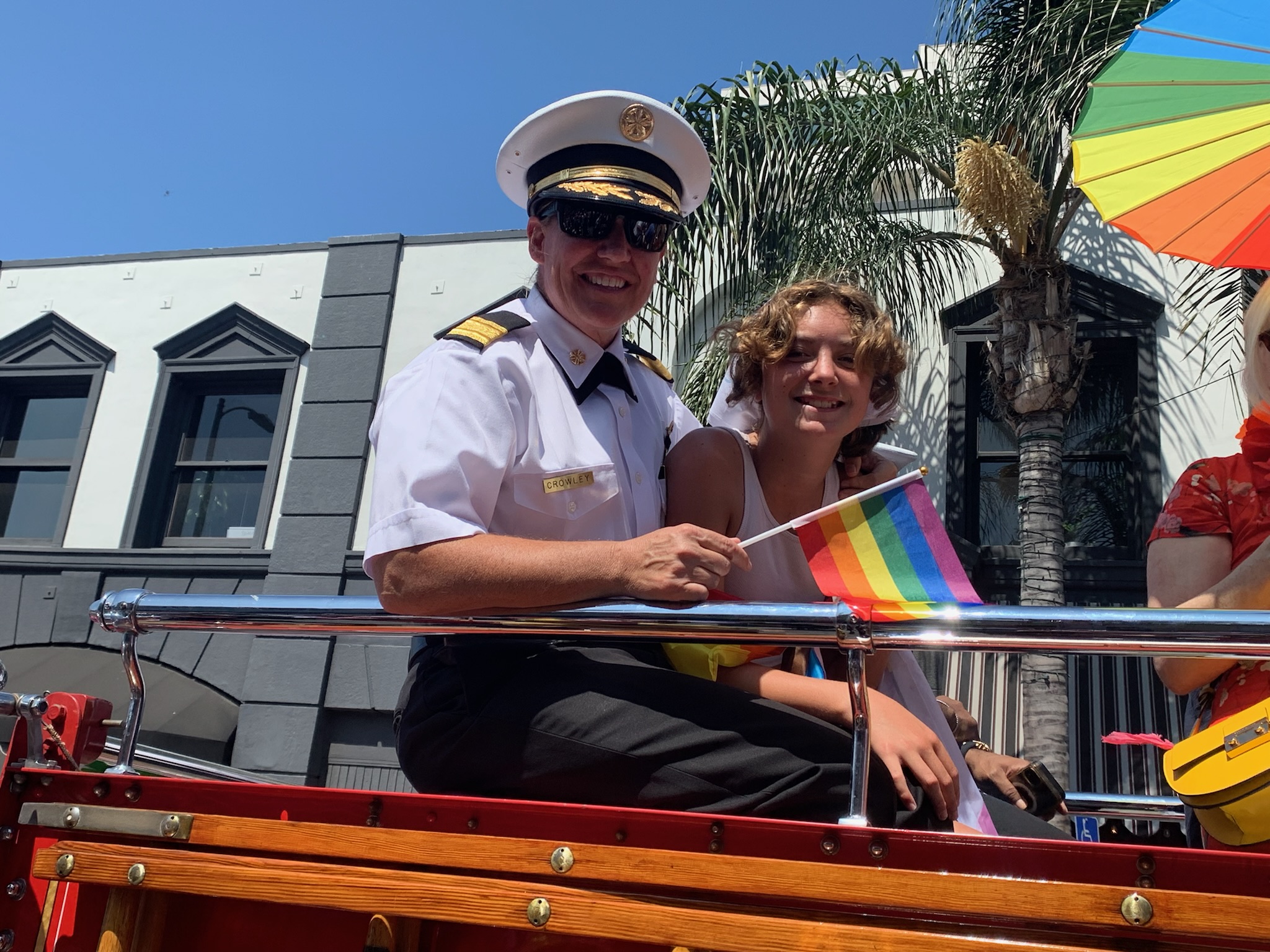
The Los Angeles City Council originally scheduled Kristin Crowley’s hearing on Friday at 5 P.M. in Van Nuys, but is now rescheduled for Tuesday, following backlash from community members and firefighter representatives who say the timing of the Friday hearing was meant to bury the issue.
On Thursday afternoon, City Council members received an email from former LAFD Chief Kristin Crowley stating that she is appealing her termination.
“Today I notified the City Council of my appeal as provided for in Los Angeles Charter, Article V, Section 5.08(e), due to Mayor Bass’ removal of me on February 21, 2025, from the position of Fire Chief of the Los Angeles City Fire Department,” said Crowley in a statement.
The UFLAC is the union that represents LAFD firefighters.
“It is outrageous that the City Council has scheduled, on just 24-hour notice, a ‘special meeting’ for Friday at 5:00 P.M. in the Valley to hear Chief Crowley’s appeal of her dismissal,” said The United Firefighters of Los Angeles City in a statement.
In order to successfully appeal her termination, Crowley would have to count on the support of 10 of the 15 council’s members.
At least four council members stood alongside Bass at a news conference on Friday, announcing Crowley’s ouster — Council President Marqueece Harris-Dawson and members Curren Price, Hugo Soto-Martinez and Adrin Nazarian.
Crowley’s decision to appeal has already been publicly opposed by at least two council members, Monica Rodriguez and Traci Park.
“This is not transparent, fair, or just. It’s yet another public blunder coming out of City Hall that makes the people of Los Angeles continue to question the motives and trustworthiness of our city’s leaders,” said the union, criticizing City Hall’s decision to handle the issue.
This is a developing story and we will continue to report as more details become available.
-

 a&e features5 days ago
a&e features5 days agoMusical Mondays, a mainstay in WeHo nightlife, celebrates 16 years
-

 National3 days ago
National3 days agoDiscredited former cop played ‘key role’ in deportation of gay make-up artist
-

 Arts & Entertainment2 days ago
Arts & Entertainment2 days agoA Night of legacy, love, and liberation: Inside the 2025 April Fool’s Ball
-

 Arts & Entertainment4 days ago
Arts & Entertainment4 days ago‘Bring it to Brunch’ returns to West Hollywood
-

 Myanmar4 days ago
Myanmar4 days agoLGBTQ+ advocacy group joins Myanmar earthquake relief effort
-

 a&e features4 days ago
a&e features4 days agoPeppermint thrives in the spotlight
-

 California3 days ago
California3 days agoSouth Park provides green space to a predominantly Latino community
-

 Arts & Entertainment2 days ago
Arts & Entertainment2 days agoSouth Coast Repertory Theatre hosting world premiere production
-

 Movies2 days ago
Movies2 days agoHeartfelt ‘Wedding Banquet’ remake a romcom worth seeing
-

 Brazil1 day ago
Brazil1 day agoUS lists transgender Brazilian congresswoman’s gender as ‘male’ on visa





